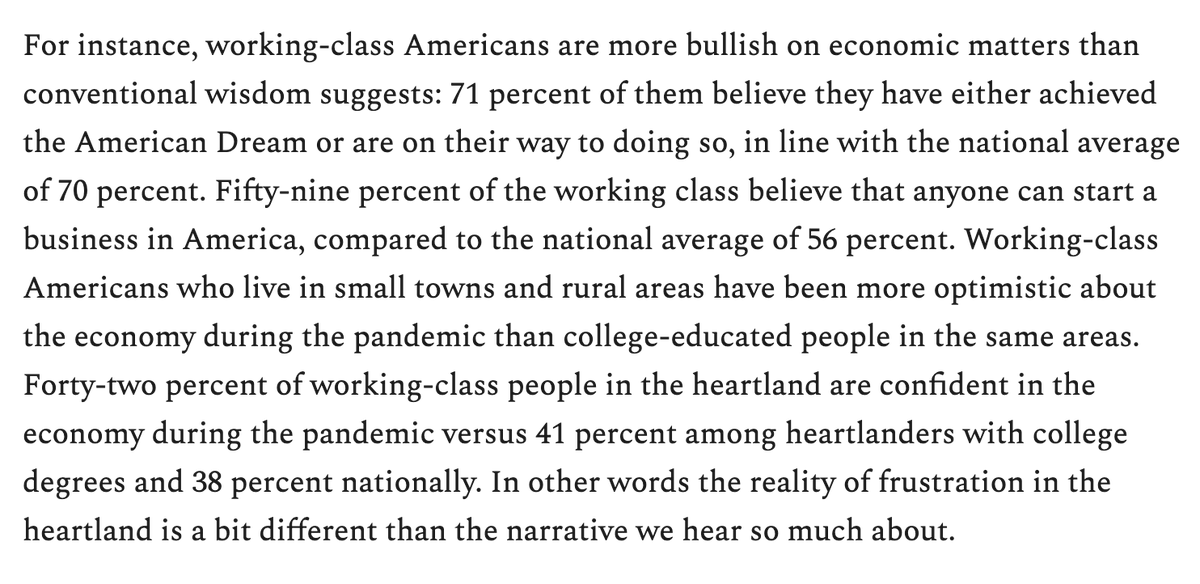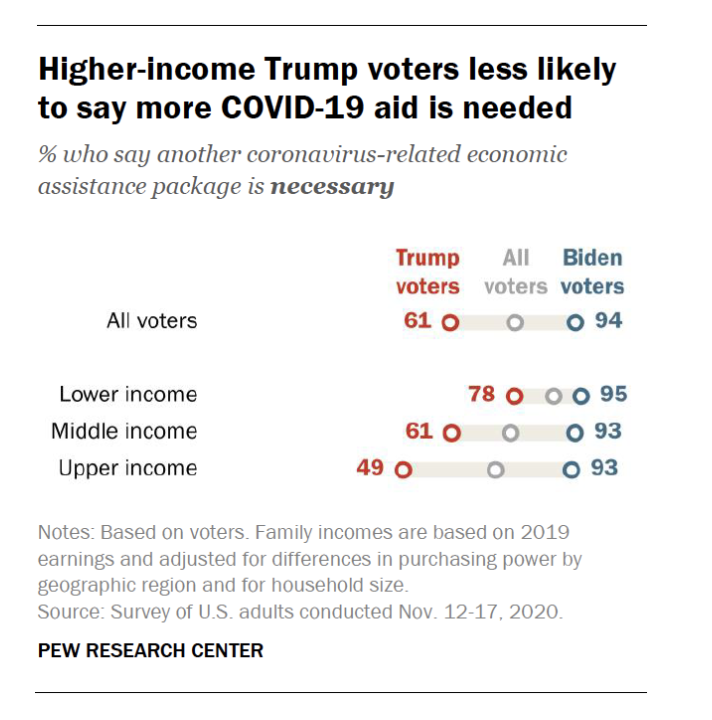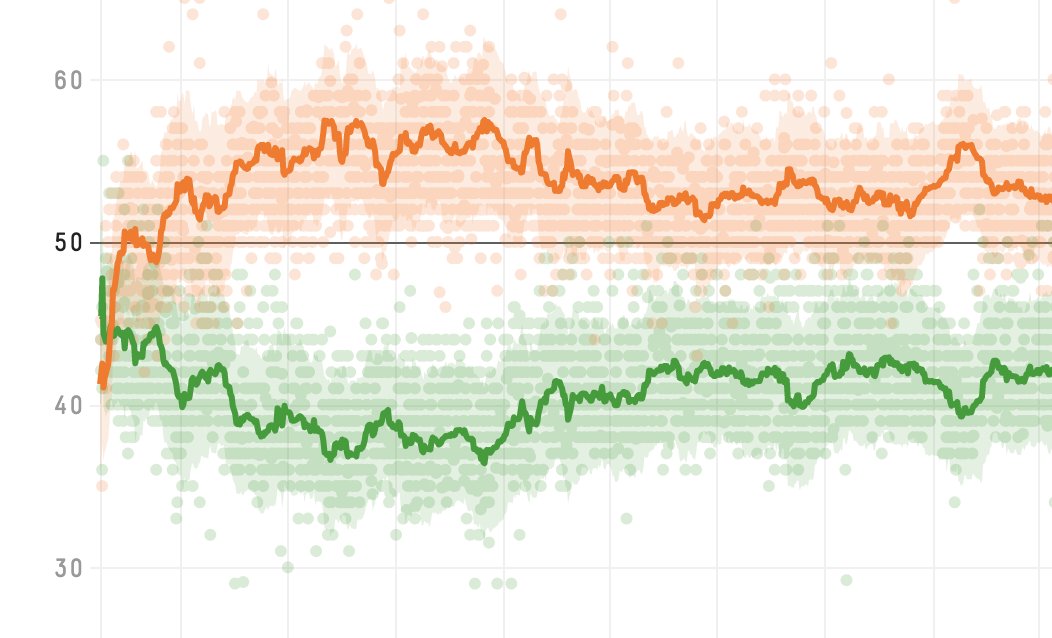
I said mildly because I completely agree with him that Trumpism is "an anti-leftist, anti-elitist cultural stance" and that most working-class Trump supporters do not have deeply-held views on, say, the details of industrial policy.
However the survey data he cites seems to show two things. First that working-class Trump supporters are not suffering from a deep sense of economic despair: 

Second that what we call conservative "cultural resentment" or anti-elitism or what-have-you is stronger as you move up the income and educational ladder: 

But if the second point is true then it seems less certain, not more, that cultural resentment alone was the elixir that moved more rural and working-class votes to the GOP in the Trump era -- since they're *not* the most resentful part of the coalition.
So what moved them? Working class Trump voters are as economically optimistic as upper-class Trump voters, but their views on economics nonetheless tend to be less libertarian -- visible, e.g., in the latest polling on Covid relief: 

Ryan writes that "if Trump had campaigned on eliminating the inheritance tax for the rich while keeping up his anti-elitist bluster, his support would have remained unchanged." That might be so. But consider a different example: Health care.
Had Trump run in 2016 on the Ryan plan for Medicare and kept up his anti-elitist bluster, would he have won the Midwest? I doubt it, not least because his lowest approval ratings as president came when ... his party attempted to repeal Obamacare: 

The point being: Working-class voters don't necessarily support the specifics of any given populist policy agenda, and they don't necessarily feel a sense of despair over the economy. But they do hold economic views that place them to left of the Tea Party-era GOP ...
... and moving away from Tea Party policy in some ways, away from austerity and entitlement cuts especially, probably was crucial to Trumpism's power, no less than all the cultural stuff than Ryan rightly highlights. /end
• • •
Missing some Tweet in this thread? You can try to
force a refresh


